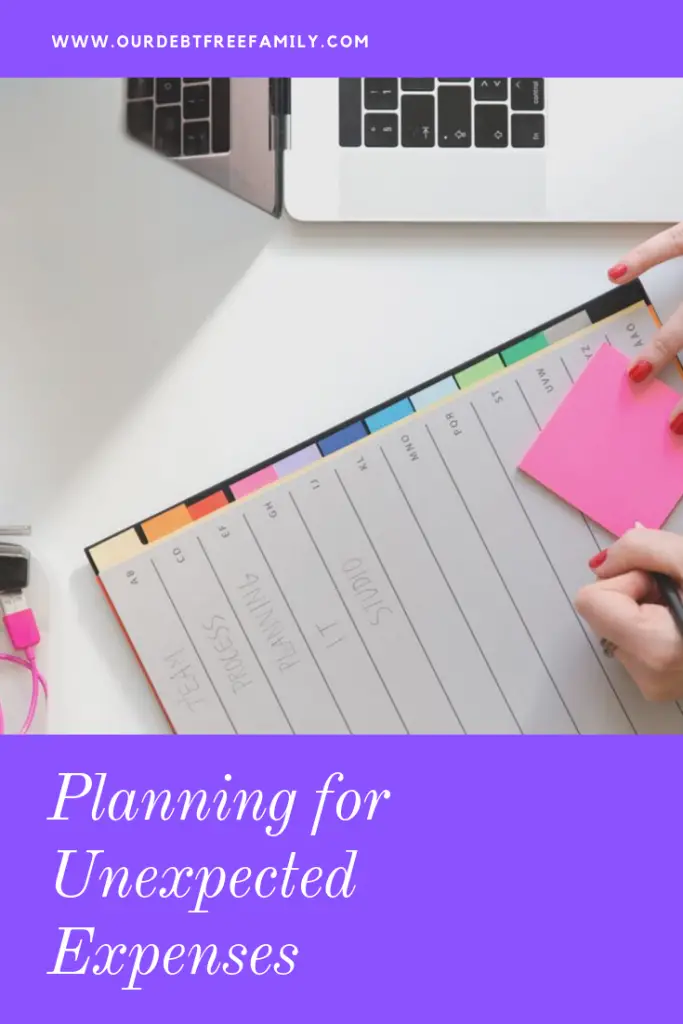
There is no doubt we’ve made strides in the right direction as far as our finances are concerned. However, there is still one area in which we are failing: planning for unexpected expenses.
This week I got the bridesmaid dress for an upcoming wedding in the mail (two weeks out from the wedding) and my worst nightmare occurred. It didn’t fit! It was far too late to return it for the correct size, so I decided to take it to a local alterations place. The total for the changes needed came out to $250.
The price definitely threw me for a loop and, because we aren’t using credit cards, it came directly out of savings. I was frustrated with myself for not planning ahead for alterations costs.
Why is Planning for Unexpected Expenses Important?
Planning for unexpected expenses is key to becoming debt-free. If we weren’t so devoted to not swiping our credit cards, I could have easily racked up another $250 in debt without batting an eye. The same is true for other expenses that may come your way out of the blue.
Failing to prepare for this is can lead to you hindering your debt progress. Not to mention, it can have an impact on your emergency savings and take away from paying off your debts. It can also put a dent in your emergency savings. Then you have to readjust your finances to refocus on padding your savings accounts once again instead of using the money for my debts.
How to Plan for Unexpected Expenses
Thankfully, there are things you can do to plan for the unexpected things in life. Here are a few tips to help you avoid the mistake I’ve made.
First, identify your unexpected expenses. Of course, we can’t always see into the future, but if there’s something that comes up with some regularity, you can try to plan ahead for it. For instance, property taxes, medical expenses, birthdays and holidays, and car repairs can all be planned for.
To identify other unexpected expenses, you can take a look at the past year’s bank and credit card statements. Note any irregular purchases and try to budget for that. You can add up the total of all the expenses and then divide it by 52 weeks. Set aside that amount every week moving forward. This can help you have the money set aside when something unexpected comes up.
Doing this will help you plan ahead and (unlike me) have the cash set aside when something may pop up. Do you have any additional tips you’d add? Leave them in the comments below!